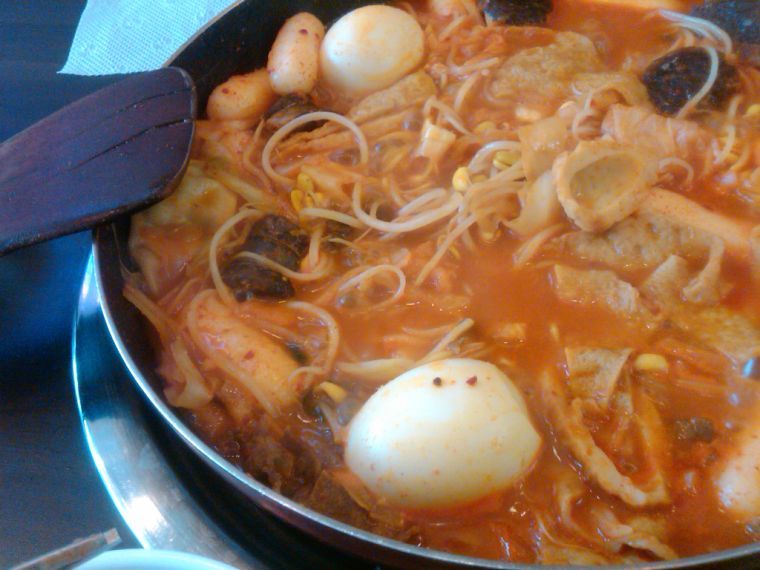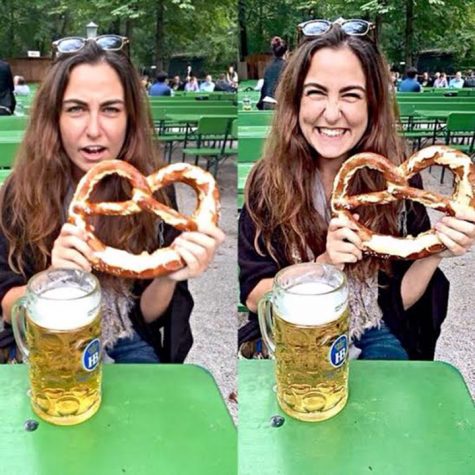SEOUL: Egg appreciation post
My name is Jenna Jaco and I am going to talk about eggs.
I always thought Texas was obsessed with all things brunchy and egg-based. Especially in Austin, I loved having the freedom to add a fried egg on top of almost any dish at a Tex-Mex restaurant. Like everyone, I was a huge fan of the breakfast taco and all its wonderful incarnations. I felt so blessed to be living in what I thought must be the egg capital of the world.
Little did I know.
Before coming here, my average daily egg consumption probably hovered around 1. Now, I’m almost positive it’s at least 2. Let me explain.
Nearly every dish I order here includes some form of egg. I’ve had hard-boiled eggs with spicy sauce in my ddeokbokki, raw egg in dolsot bibimbap (which cooks itself in the really hot bowl it comes in), and paper-thin scrambled egg that seves as the shell of an omelet/burrito hybrid. When I order a kimchi rice cup for a quick lunch, there’s a crispy fried egg on the top for me to smash with my spoon until my rice reaches the perfect consistency. Kimbap (seaweed-rice rolls) almost always has chunks of egg incorporated with the other fillings. I’ve also tried a cold quiche-esque side dish, and miso soup with bits of shredded egg added into the mix. All of this is monumentally better than it sounds, I promise.
And that’s only half of it. The many faces of the almighty egg have revealed themselves to me gradually over the past weeks, and I have yet to be disappointed.
What’s strange, though, is the near-complete absence of egg when it comes to breakfast foods. This is probably due to the lack of Korean breakfast foods in general. Cereal isn’t as big of a thing here, and most typical “breakfast foods” like toast or waffles are seen more as dessert options. Some people eat pastries or different kinds of bread in the morning, but I usually just grab kimbap or some yogurt if anything.
It seems almost tragic that all the wonderful Korean uses of eggs are reserved only for lunch and dinner purposes. The general overlooking of breakfast is just another small thing that reminds me I’m very far away from brunch-obsessed America. What defines a cuisine isn’t just what people eat, but when they eat it; I hadn’t given that much thought before.
Wow. I was about to get deep there for a second. Then I remembered I literally just dedicated 400 words to eggs.
That being said, eggs will always be one of my favorite parts of Korean food culture, and every new meal is a life-altering experience bordering on the metaphysical. I have seen the light, and the light is egg.





